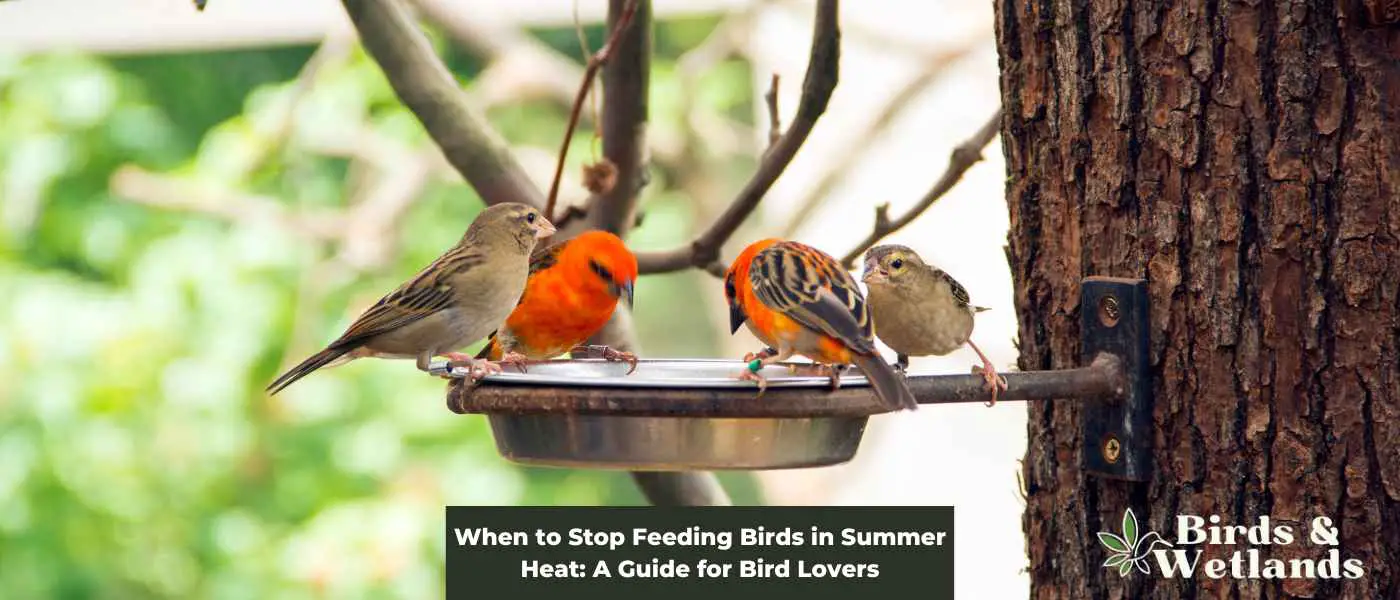Generally, it is not necessary to stop feeding birds in the summer. Many bird species appreciate the steady food source, especially during nesting season when they’re feeding their young. However, in areas with bear activity, it may be advised to remove feeders to avoid attracting these larger animals. If you decide to stop, do so gradually, so birds can adjust to finding more of their food from natural sources. Always ensure feeder cleanliness to prevent disease spread during warm months.
Key Takeaways On When To Stop Feeding Birds In Summer
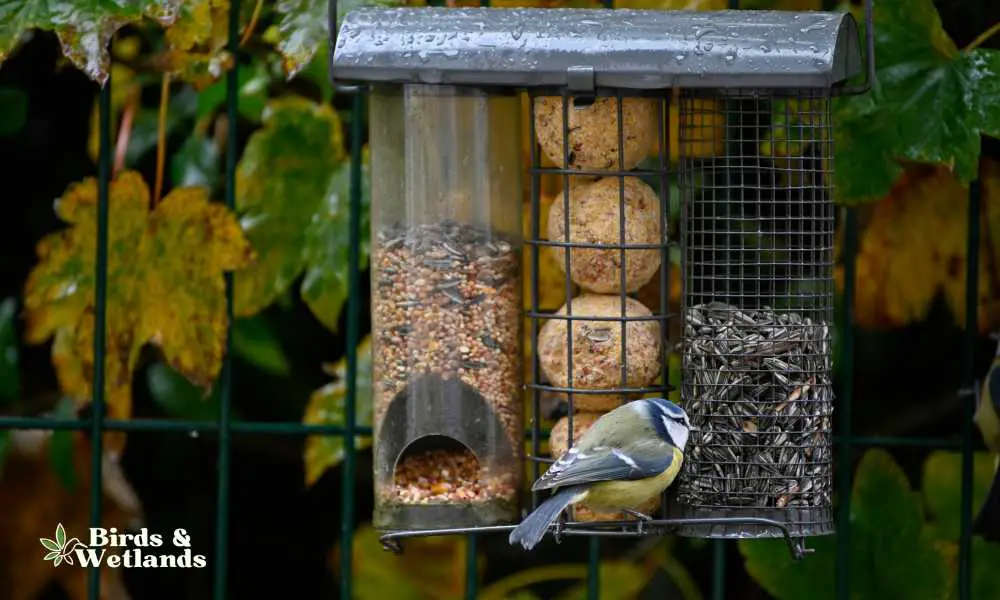
Should You Feed Birds All Year Round
Pros of Feeding Birds Year-Round:
- Support During Scarcity: In some seasons such as winter or during droughts, natural food sources can be scarce. Feeding birds during these times can provide them with a valuable supplemental food source.
- Observation and Enjoyment: Having birds visit your yard throughout the year can provide year-round bird watching opportunities. You might attract different species in different seasons, providing a chance to observe a variety of birds.
- Help During Breeding Season: Spring and summer, the breeding season for many bird species, can be a time of high energy demand. Providing bird feeders can be especially beneficial during this time.
Cons of Feeding Birds Year-Round:
- Dependency: There’s a concern that birds may become dependent on feeders, which could potentially disrupt their natural foraging habits. However, research suggests that most birds use feeders as a supplemental food source and not a primary one.
- Spread of Disease: Feeders can potentially contribute to the spread of disease among bird populations if they’re not regularly and properly cleaned.
- Attracting Predators: Bird feeders can attract predators, so it’s important to position feeders in a way that is safe for the birds. This can be a concern throughout the year.
- Attracting Pests: In some seasons, bird feeders might attract unwanted pests such as rodents or insects. This can be mitigated by regular cleaning and using specific seed types.
Should you stop feeding garden birds in the summer?
Feeding birds in the summer can be a matter of debate among bird lovers, but it ultimately depends on the type of food and the location you are in. In general, it’s not necessary to stop feeding birds during the summer, but it’s important to be mindful of their needs and adjust your feeding practices accordingly.
During the summer, birds have a different diet and may rely less on feeders than they do in winter. However, providing a source of fresh water is crucial, especially during hot and dry weather when natural water sources may be scarce.
You can also offer various foods appropriate for the season, such as fresh fruits, vegetables, nectar, mealworms and dried insects. You should also consider when to start feeding birds in the fall.
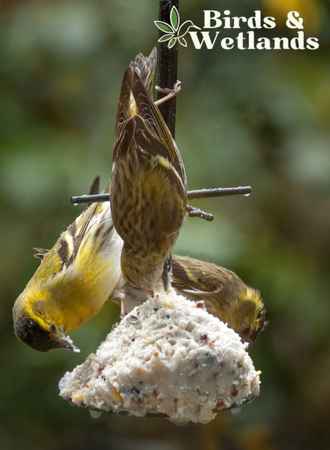
What month should I stop feeding the birds?
There is no prescribed time for taking down feeders because the timing can vary depending on the region, the species of birds, and the individual situation.
Many backyard birders don’t feed birds during the spring and summer months when abundant natural food sources are available to the birds. This is to prevent birds from becoming too dependent on artificial food and to encourage young birds to forage for food naturally.
In the fall and winter, when natural food sources become scarce, a bird feeder can be a valuable source of food for winter birds. However, it’s important to monitor the feeders and make sure they are clean and well-stocked, as well as to avoid attracting predators or unwanted pests.
Experienced birders recommend leaving feeders up year-round and adjusting the type of food offered for winter birds depending on the season and the local bird population.
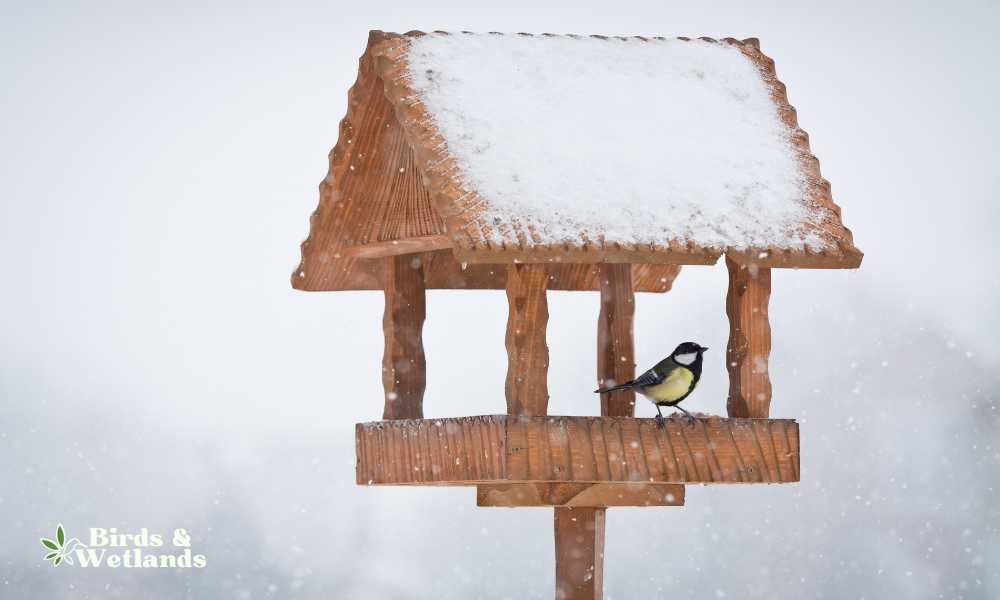
Is it OK to feed birds year-round?
Feeding young and adult birds can be a great way to show our love for these beautiful creatures, but we need to ensure that we feed them properly and at the right times. Generally, bird feeding is most helpful when natural seed sources are scarce, such as during temperature extremes, migration, late winter, and early spring.
It’s important to remember that most birds don’t require extra food during the summer as they primarily feed on insects. However, this rule has a few exceptions, such as hummingbirds, house finches and ground-feeding birds.
Hummingbirds should be fed nectar solution made from a mixture of one part white granulated sugar to four parts water, without any honey or food coloring in a hummingbird feeder. On the other hand, house finches should be fed nyjer seed and cracked corn in a tube feeder designed for small seeds. Ground feeding birds may have difficulty finding earthworms if the ground is too dry in the summer.
Other birds may also visit your bird feeders such bluebirds and orioles which are attracted to fruit and grape jelly. While woodpeckers and black-capped chickadees are backyard visitors throughout the year.
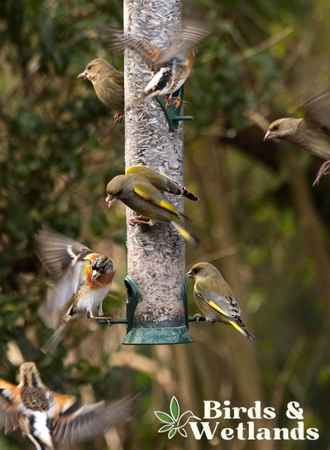
What are the risks of feeding birds in the summer?
A bird feeder filled with different seeds and to offer birds something to eat can be a delightful way to attract more wildlife to your yard and help the local bird population, but it’s important to be aware of the potential risks involved, particularly during summer.
One of the main risks of feeding birds in the summer is the potential to grow harmful bacteria, such as salmonella and E. coli. These bacteria can thrive in warm and humid conditions, common in the summer, and can make birds sick. Sick birds can infect other birds.
To minimize the risk, cleaning feeders regularly is important to prevent the spread of infectious diseases. Moreover, keep your seed dry at all times.
Another potential risk of feeding as many birds in the summer is the attraction of unwanted pests, such as rodents. Different Bird feeders can provide a food source for these pests, which can lead to an infestation in your yard or even your home.
To reduce the risk, consider using feeder styles or different feeders that are designed to deter squirrels and other rodents and avoid overfilling them to have a better chance of preventing spillage.
Lastly, it’s important to be mindful of the types of bird foods you offer to bird species in summer. In hot weather, certain types of food, such as suet, peanuts and seed mixes, can spoil quickly in a feeder and attract bacteria and rats.
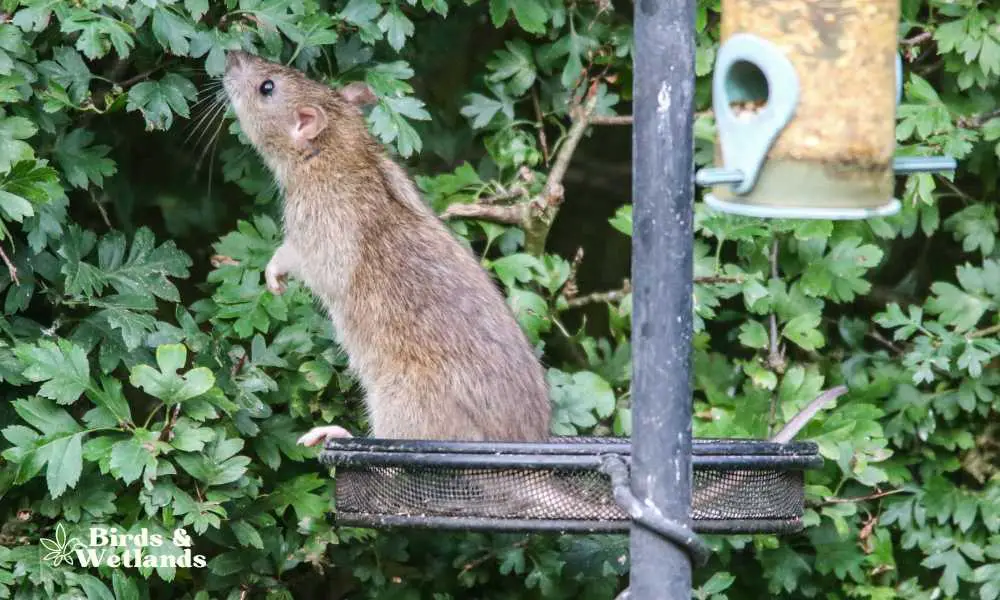
Should I stop feeding birds in the summer if I live in a place where bears exist?
You can feed bids good foods in most states but with one exception. If you live in a state with bears, it is important to stop feeding birds in the summer for several reasons. First and foremost, bird seed and other bird food attract not only birds but also other wildlife, including bears.
When bears become accustomed to finding food in residential areas, they may lose their fear of humans, which can lead to dangerous encounters.
Feeding birds during the summer months can also impact the natural foods that bears rely on in the wild. When bears have access to bird feeders, they may stop foraging for food in the woods, leading to a disruption in their natural feeding patterns. This can result in the bears becoming malnourished and weak, making them more vulnerable to disease and other dangers.
Bears that are used to eating human-provided food may become a nuisance, causing damage to property and potentially becoming a threat to human safety. When bears become too comfortable in residential areas, it can be difficult to encourage them to return to their natural habitats.
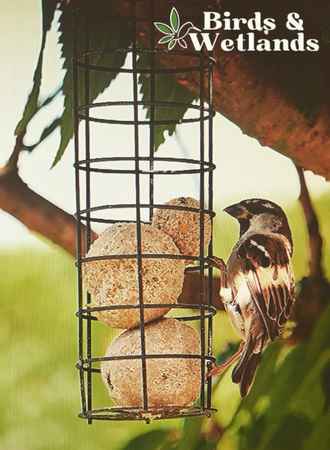
Will wild birds starve if I stop feeding them in summer?
Backyard birds have adapted over thousands of years to survive in their natural environments, including finding food independently. While feeding birds during the winter can be helpful, it is unnecessary for their survival during the summer months.
It is important to note that while it may not be necessary to feed birds during the summer, it is still important to provide them with a source of fresh water. A source of clean water can still attract birds in the summer.

